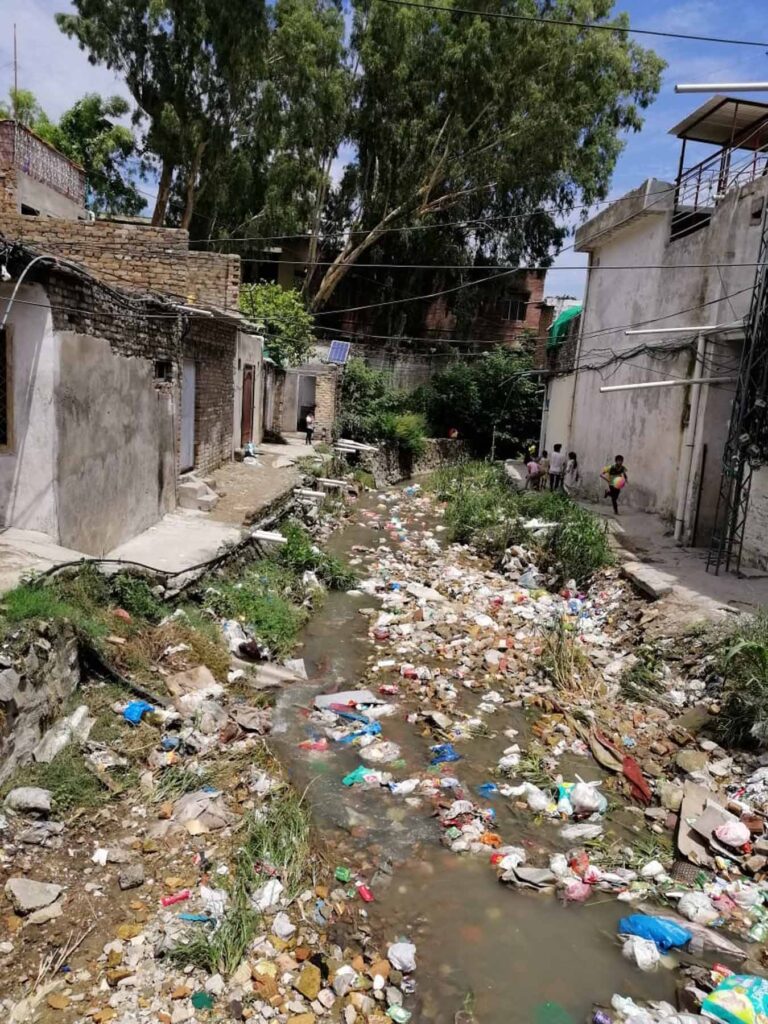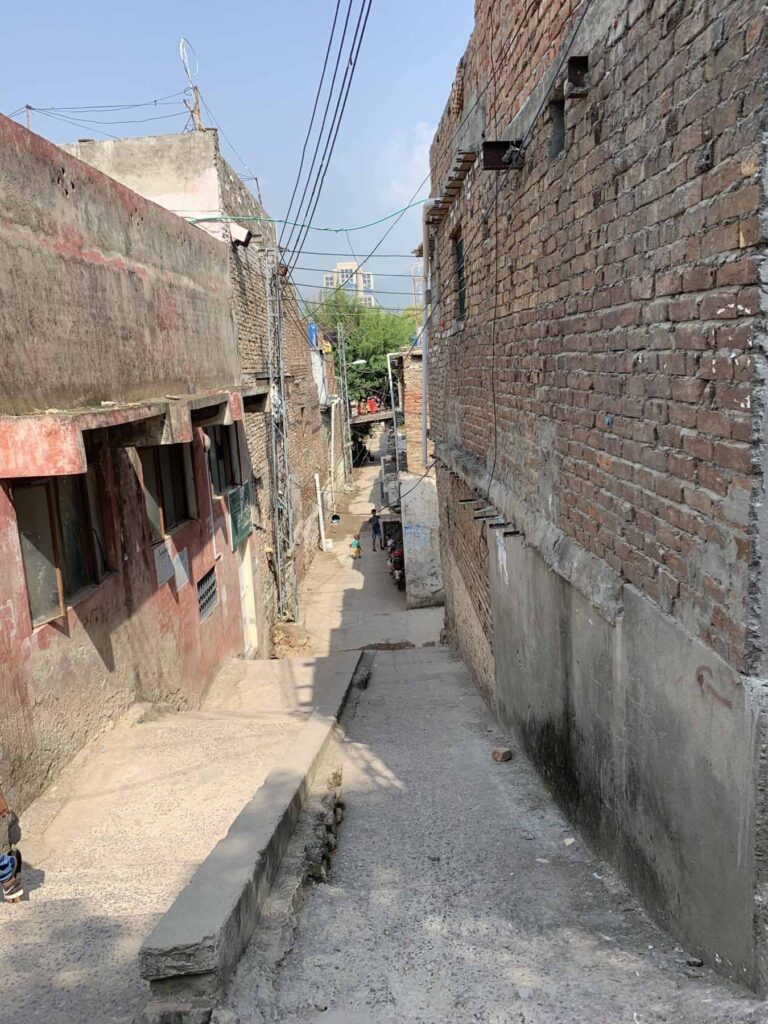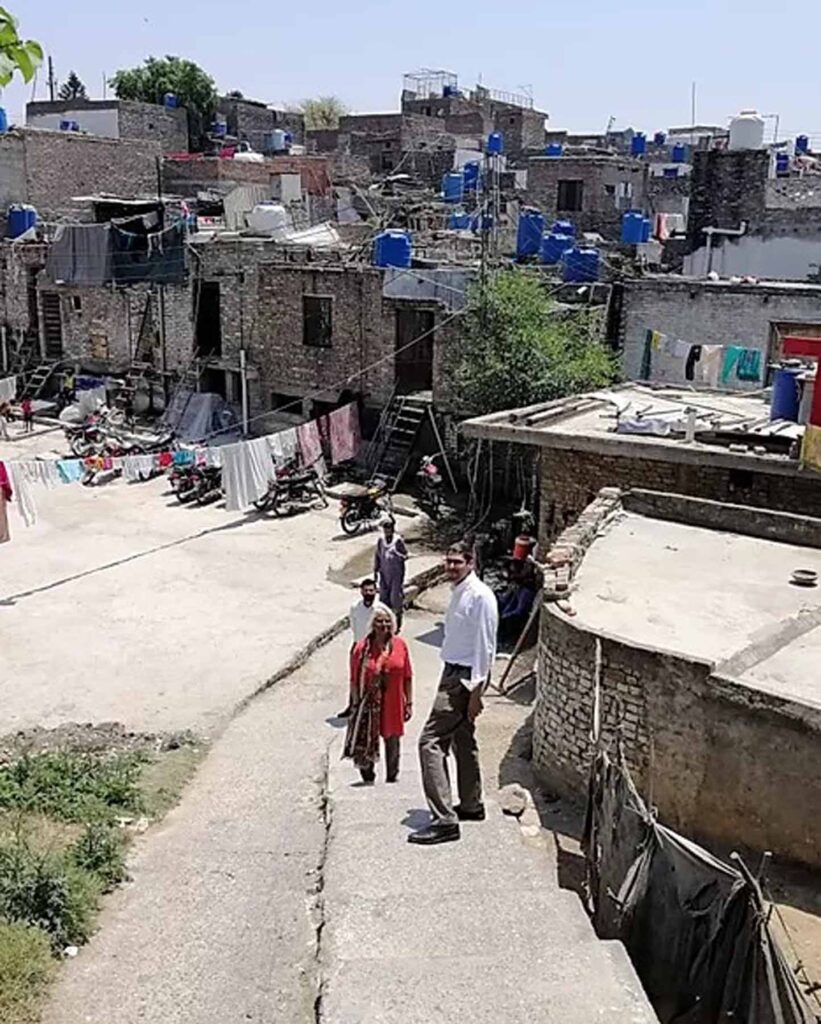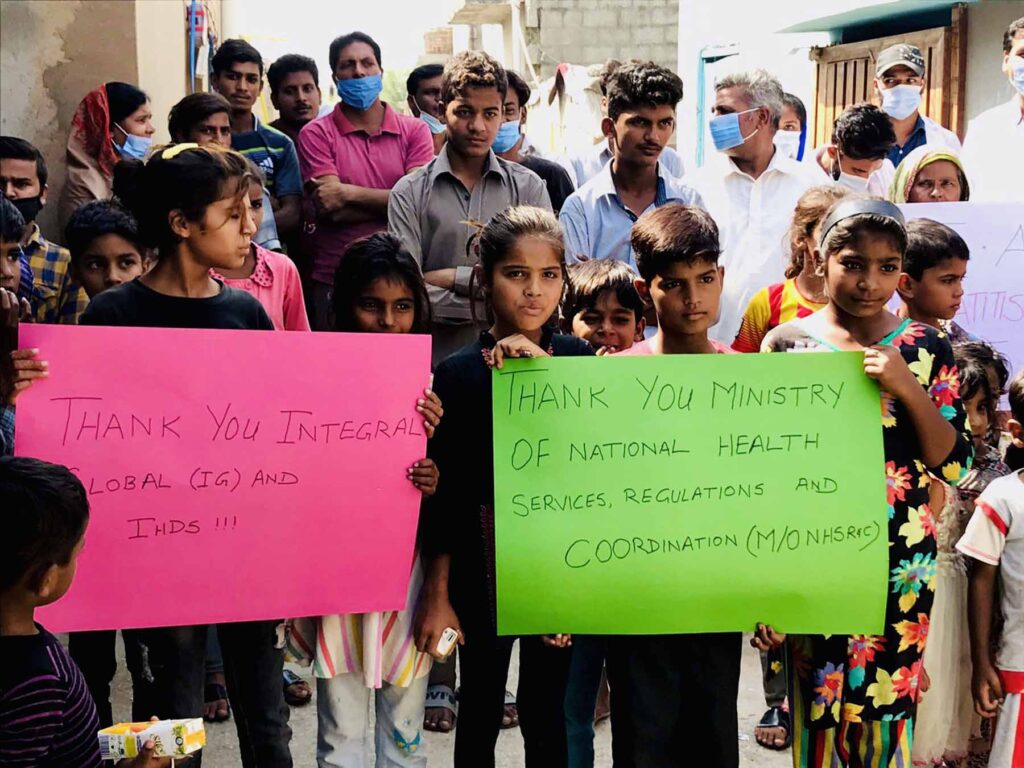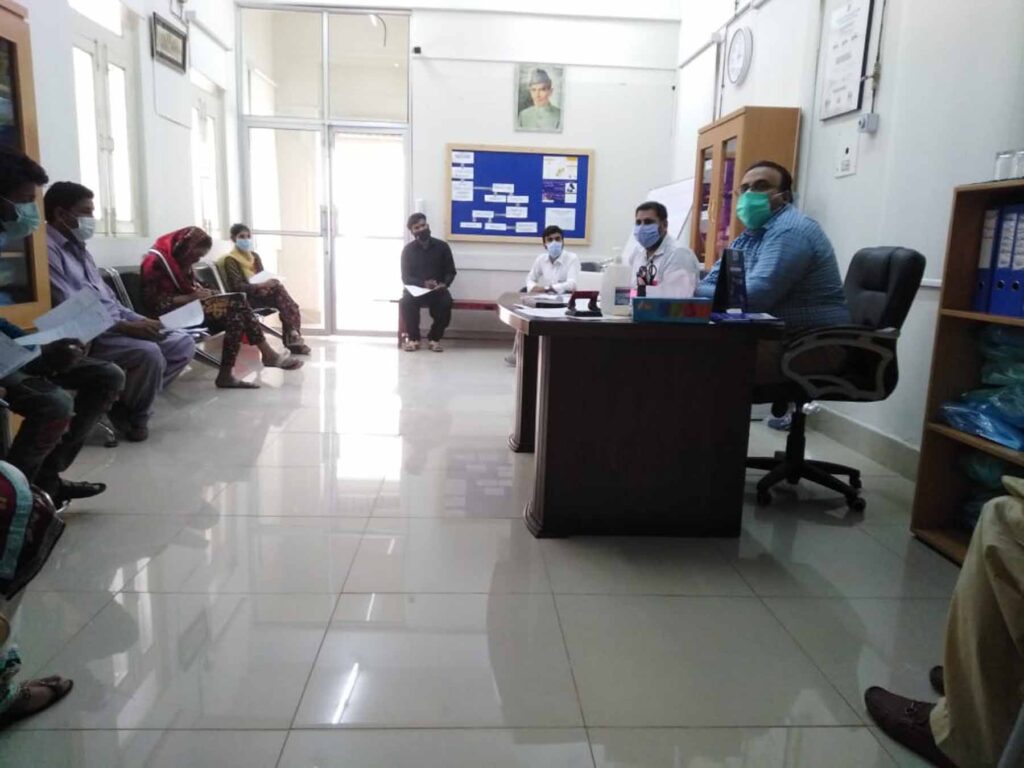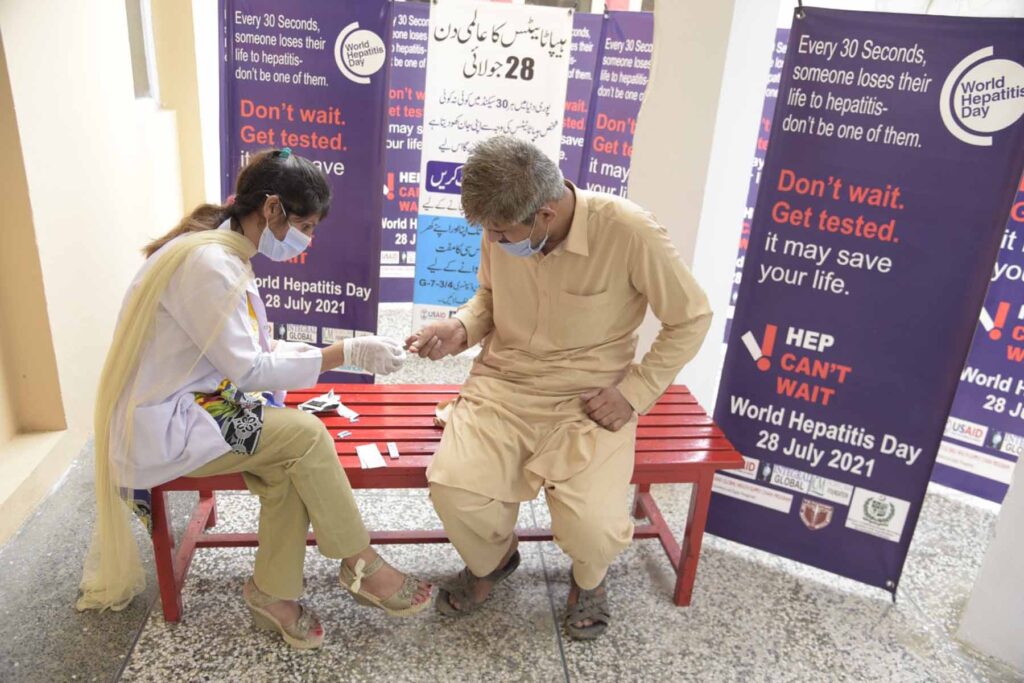On March 02, 2019, Pakistan’s Federal Ministry of National Health Services, Regulations and Coordination launched a hepatitis C elimination project in 17 marginalized communities (locally referred to as slums) scattered throughout central Islamabad, the federal capital of Pakistan. The slum population tends to live in small multi-generational dwellings. Most of these individuals earn wages daily as launderers, house cleaners, food servers, and brick layers.
This project was a unique model of public private partnership where the project was implemented at the Federal Government Health Dispensary in the center of the city. Integral Global Consulting (IGC) conducted community testing, after which patient data was entered in the computers leading to improved care and almost 97% cure rates. The quality and the processing of data was monitored by Division of Viral Hepatitis (DVH) of Centers for Disease Control and Prevention (CDC). Screening, data collection and follow up services were provided by community health workers hired from the same communities. A vigorous awareness raising campaign was launched to enhance response rates and scale-up screening, testing, and treatment services.
During its course of three years, the project captured a strong political support nationally and internationally. Federal Health Ministers, the Director General Health, Experts from the World Health Organization (WHO), CDC, USAID, and the Asian Development Bank (ADB) visited the project personally and reviewed the objectives, methodology and results of the project.
Testing
IGC’s in-country staff visited the slums to assist the community health workers with hepatitis testing and disseminating educational campaigns for the communities. These campaigns led to the screening, testing, and treatment of over 25,000 individuals residing in the slums in Islamabad.
Celebration
At the end of the project, the local communities in the slums in Islamabad joined together on the streets to thank the John C. Martin Foundation (JCM) and IGC for their efforts in reducing the burden of hepatitis C. The care cascade showed that over 97% of the people who tested positive for hepatitis C were cured.
Additional information about this project can be found through the following links:



